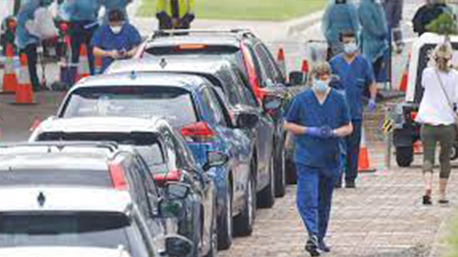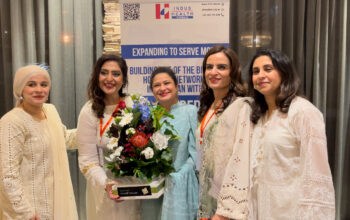NSW Health calls for hospitals to scrap testing requirements for mothers and pregnant women
NSW Health has called for maternity wards to scrap testing requirements for new mothers and pregnant women after they had been told to undertake regular PCR testing.
Many maternity wards had been asking women to get a PCR Test every 72 hours from week 38 of their pregnancy.
New parents Katrina and Donald Katipunan have been getting a PCR test every three days to be by the side of their newborn identical twin boys in the Neonatal Intensive Care Unit at the Children’s Hospital at Westmead.

“I think about us going to get a test, and I think about them, because I know that it’s not just me,” Mr Katipunan said.
It’s not just new mothers but also expectant mothers.
Sophie Burnett is 37 weeks pregnant with twins. She was forced to wait five hours for a test on Boxing Day in preparation for giving birth tomorrow.
“It was a lot of sitting, I ran out of water quite early, and obviously there was nowhere for me to go to the toilet which was another issue we faced,” Ms Burnett said.
“It was a long five hours.”
NSW Health has intervened and told all public maternity wards to scrap asymptomatic PCR testing requirements and asked the private sector to do the same.
Parents with children in hospitals will now be offered rapid antigen tests upon arrival.

NSW Premier Dominic Perrottet said pregnant women should not be queuing for frequent COVID-19 PCR tests.
Mr Perrottet said this “shouldn’t happen”.
“No one who is pregnant should be sitting in long queues, I spoke to the Health Minister this morning and asked him to fix it,” he said.
Mr Perrottet said Health Minister Brad Hazzard is “getting it fixed” today.
Mr Hazzard said earlier today the government is working with private hospitals that require pregnant women to queue for frequent COVID-19 tests.
“I’ve asked NSW Health to work with those private hospitals to convert them from PCR tests to rapid antigen tests,” he said.

Testing queues have become particularly onerous in recent days, with many clinics finding themselves overwhelmed and forced to turn people away.
Despite testing levels being approximately equivalent to what they were during the Delta outbreak, wait times and delays on results are longer.
Mr Hazzard said the health system was simply “exhausted”, with workers having been on the front lines for months.
Additionally, thousands of health workers are unable to work as they are in isolation under close contact rules.








